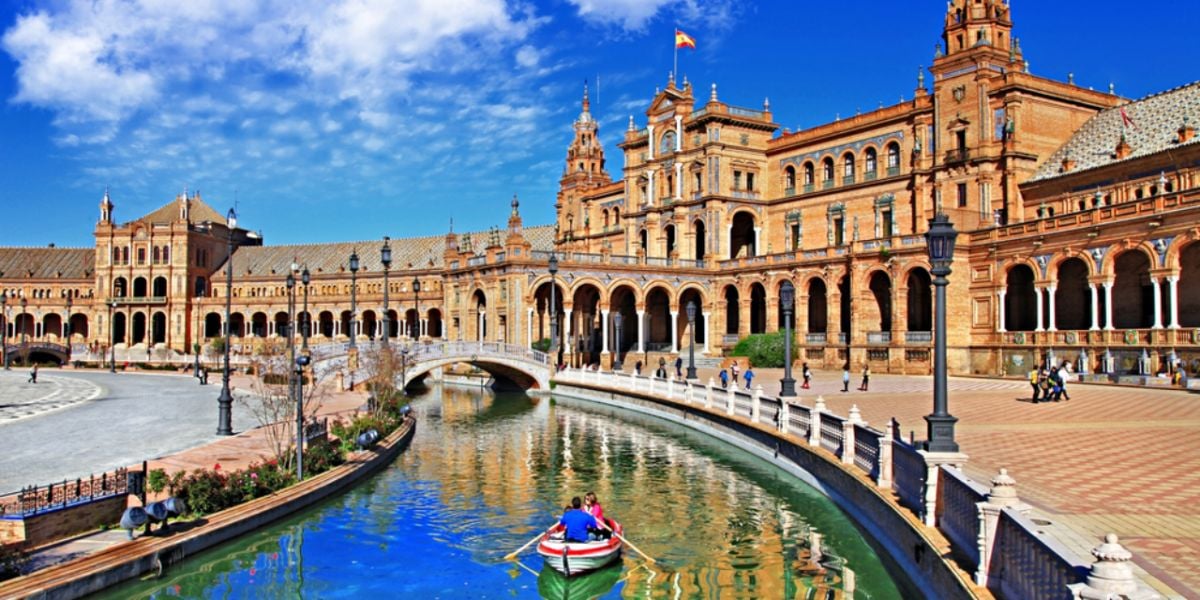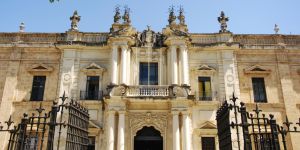
Seville is home to a raft of fascinating and quirky traditions from tapas culture and taking a siesta to late-night dinners and days-long fiestas. If you are going to live and work in Andalusia's capital and want to jump right into the culture, here are a few tips on doing it well.
Start living like a local
As the saying goes, “when in Rome do as the Romans do”. So, go beyond the tourist phase to really start living like a local in Seville.
Adjust to the mealtimes, which are later than in many other countries in Europe and across the world. Lunchtime is generally between 2 p.m. and 4:30 p.m., while dinner typically takes place from 9 p.m. onwards.
Dine on tapas dishes. Tapas bars are a big part of Spanish life, and there are approximately 3,000 in Seville. Not only will you be sampling lots of different types of food, but you'll also have plenty of opportunities to chat with locals. In general, Spaniards are friendly by nature. Among the Seville tapas dishes you absolutely must try are carrillada de cerdo (pork cheek), espinacas con garbanzos (spinach with chickpeas), and solomillo al whisky (slow-cooked pork tenderloins in a whisky sauce).
Embrace the siesta like you were born to it. Many shops and businesses close during the afternoon and children come back home from school for the day's main meal and a nap. A siesta is an ideal way to pass the midday heat. In the summer, you will understand why.
Immerse yourself in the local culture
Like every other town, village, and city, across the length and breadth of Spain, Seville loves to throw a great party. The year is dotted with a dizzying array of national, local, and regional fiestas. Let your hair down and immerse yourself in these important parts of Spanish social and cultural life. Among the annual fiestas not to miss are:
Semana Santa - the Easter tribute to the passion of Christ is a week-long series of large processions and religious events.
Feria de Abril - one of Seville's biggest annual parties typically occurs two weeks after Easter. There is fun, frivolity, traditional costumes, food, fairgrounds and folk dances.
Three Kings Parade (Los Reyes Magos) - this has taken place every year in the city since the early 20th century. Every 5th January floats carrying the three kings from the biblical nativity story parade along the streets, throwing sweets to the crowds.
Velá de Santa Ana – takes place in July and is in honour of the Triana neighbourhood's patron saint. There are lots of fireworks, contests, sporting activities and religious events. It includes La Cucaña, where participants have to walk or run along a greasy pole extending from a boat's bow to grab a flag. They must do so without falling into the water.
Then there is flamenco. Seville is a city that lives and breathes this traditional Spanish art form, and many Sevillians say flamenco is in their blood. There are flamenco shows in dozens of venues across the city, such as Tablao Flamenco Los Gallos and La Casa del Flamenco-Auditorio Alcántara.
Learn the language
If you are not a Spanish speaker and haven't already signed up for a course, do so at your earliest opportunity. Join classes organized by local language schools such as BBLingua and Centro de Lenguas e Intercambio Cultural.
When you have a smattering of vocabulary, don't be shy about using it. Practice every opportunity you have. For example, say hello to your neighbors, order in Spanish in supermarkets and restaurants, and strike up conversations while waiting for buses or trains. This may well mean stepping a little out of your comfort zone, but the overall results in improving your Spanish language skills are more than worth it.
Make Spanish friends and look for opportunities to participate in intercambios del idioma, language exchanges with Spanish natives who want to learn or improve their English speaking. Search for intercambios on local social media groups and on Meetup.com.
We do our best to provide accurate and up to date information. However, if you have noticed any inaccuracies in this article, please let us know in the comments section below.








